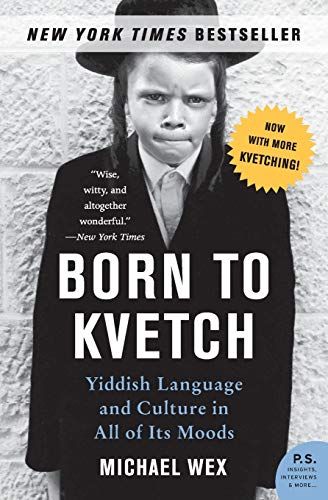Now that I’m a parent, and my son’s family is incredibly small, I find myself missing my grandparents every day, even more. I miss early Sunday Italian dinners that my Nana cooked, and I miss the smell of walking into my Lambee’s house while she made matzoh ball soup. Yes, one side of my family is Italian, and the other side is Jewish. It has made for some great food, a lot of guilt, and some, uh, interesting family dynamics. Both grandmothers were cooks, although my Nana didn’t really love it. Lambee would always lament my lack of interest in cooking, telling me that my future husband will want me to cook, what am I going to do? She didn’t think my answer of take-out was as funny as I did. Now it’s been nine years since Nana’s died and three since Lambee, and I think both of them would be pleasantly surprised at how I’ve been doing in the kitchen. Don’t get me wrong: I don’t love cooking, and I don’t anticipate falling in love with cooking or baking any time soon. But I’m coming to a happy medium.
How Cooking and Reading Help
I realized I was making the same thing for dinner over and over, so I ventured out into the world of cookbooks. I dusted off my copy of Giada De Laurentiis’s Everyday Italian, and bought Jake Cohen’s Jew-ish: Reinvented Recipes from a Modern Mensch. Believe me, it’s slow-going, but every time I pull out the cookbooks, I can practically see Lambee kvelling. When my son and I bake challah on Fridays, I imagine her walking through the door, exclaiming at the smell of fresh bread and teasing me about what a balabusta (“homemaker,” in Yiddish) I’ve turned out to be. Even if I don’t cook anything special, and am just making pasta (which is often part of our Friday night dinners), I’m reminded of my Nana — she made her own tomato sauce — or “gravy,” as she called it. I never paid much attention to anything that was done in the kitchen, but I do remember being fresh out of college and living down South, and calling her and asking about the sauce. I wanted the recipe, and she plainly told me she didn’t have one, she just made it. She couldn’t explain it; she just made it. She didn’t tell me much, but I clearly remember her telling me to add sugar for the sweetness. To this day, I will add sugar to my store-bought tomato sauce. It always tastes better that way. Since cooking is just a small part of my life, I’ve also been exploring more about the cultures of both sides of my family through books. As mentioned earlier, there’s just so much that I wonder about, that I never got to ask any of my grandparents. Both of my grandfathers fought in WWII and were at Pearl Harbor. Both sets of grandparents had interesting love stories. And all of this history is gone. So instead, I read. It’s kind of clichéd, but I read Frances Mayes’s books on Italy. I find that she describes things so vividly, and I always enjoy reading the recipes, even though I’m never going to actually make them (my current favorite read of hers is See You in the Piazza). As I read, I can almost hear my sharp-tongued Nana make comments about the various parts of Italy. When I make baked ziti or lasagna, sometimes I’ll get the sugar/spice ratio so close to her sauce that I can taste remnants of it on my tongue. I read Born to Kvetch because I realized that with the death of my maternal grandparents, there’s not as much Yiddish in my life as there once was, and I miss it. But it loses something, not having many people to use it with. When I got the ARC of Zabar’s: A Family History, with Recipes, I knew my grandfather would have loved it. I read about knishes and blintzes and it feels like coming home. (As a side note: within my general reading, I make it a point to read widely and diversely. I have read many Jewish books by diverse authors, but less so regarding food or Yiddish, and not so much re: Italian food or culture, either) Books have always helped me make sense of things, and now they help me bring my grandparents back into my life in little ways, whether it’s trying a new recipe, or reading about different places, foods, or history. Given the rich culinary histories of both cultures of my family, perhaps it’s no surprise that books about food or cooking have brought me comfort. Of course, it’s not enough — I wish they were still here — but sometimes it’s just the thing I need at that moment. If you’re looking for more info on books about food or cooking, take a look at this fun quiz about ’90s food and throwback books, and this post about foodie bookstagram accounts.
